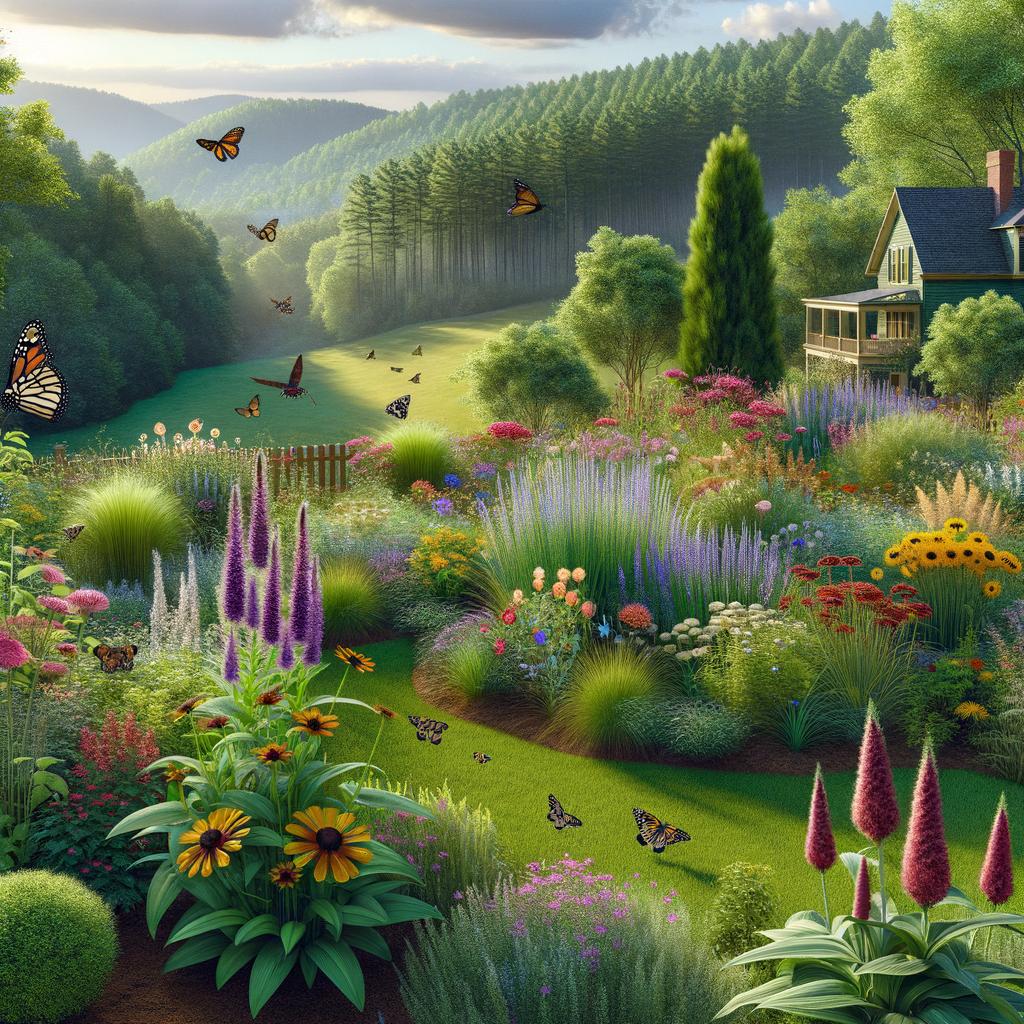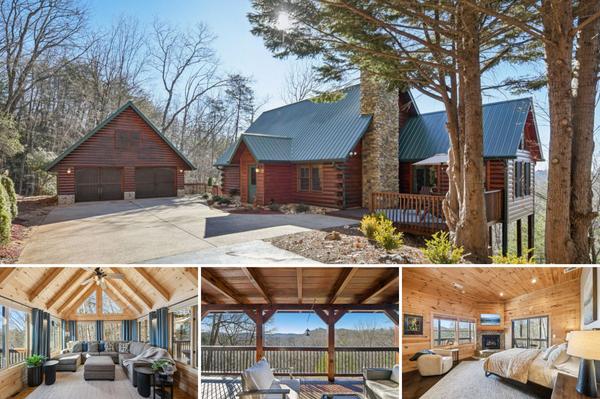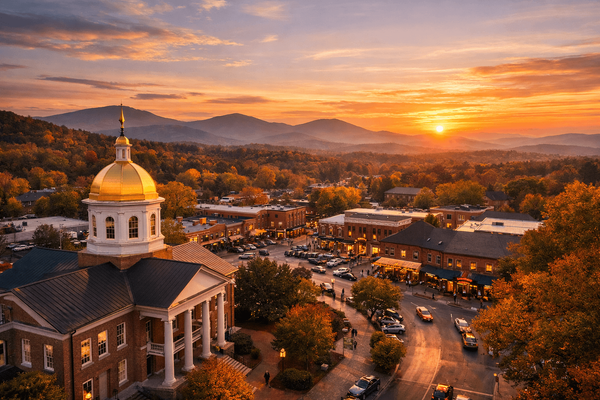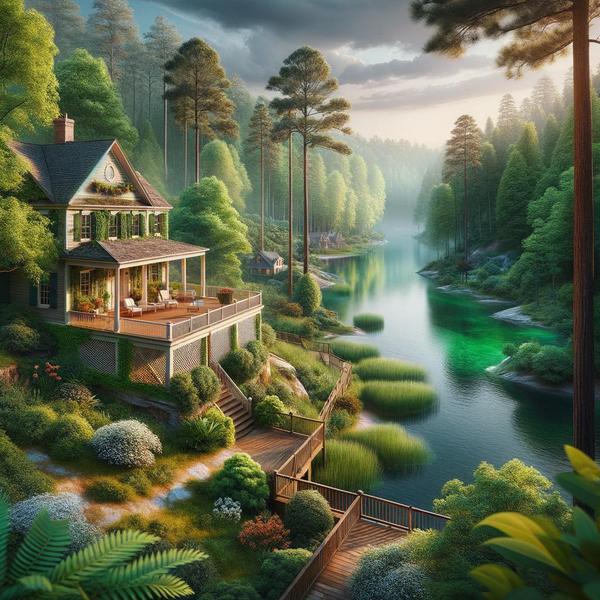Creating a Pollinator Garden in Gainesville: North Georgia Tips

Creating a Pollinator Garden in Gainesville: Tips for North Georgia Gardens
Are you yearning for a vibrant, sustainable garden that not only enhances the beauty of your Gainesville, North Georgia home but also supports the local ecosystem? Creating a pollinator garden might be the perfect project for you! As the urgency to conserve biodiversity grows, pollinator gardens are gaining in popularity. These gardens provide a crucial refuge for bees, butterflies, and other beneficial insects that are essential for pollinating plants.
In this detailed guide, we will explore how to create a thriving pollinator paradise in Gainesville and North Georgia. From selecting the right plants to implementing sustainable garden practices, this article will provide valuable insights to both budding and experienced gardeners.
Understanding the Importance of Pollinator Gardens
Pollinators play a pivotal role in our ecosystems. Approximately 75% of all flowering plants rely on animal pollinators to reproduce, making them essential to the health and productivity of both wild and cultivated plant communities. By creating a pollinator garden, you actively contribute to environmental health. Additionally, these gardens aid in the production of fruits, vegetables, and nuts, which compose one-third of our diet.
Aiding Biodiversity
Pollinator gardens are havens for biodiversity. They offer diverse microhabitats that support various life stages of pollinators, including foraging, nesting, and overwintering. This biodiversity boosts the resilience of ecosystems, making them more capable of withstanding environmental changes.
Finding the Perfect Location for Your Pollinator Garden
The first step in creating a pollinator garden is selecting the perfect location. Consider factors such as sunlight, soil quality, and proximity to other plants. Here are a few tips to help you select an ideal spot:
Sunlight Requirements
Pollinators thrive in sunny environments. Aim for a garden location that receives at least six hours of sunlight per day. This condition ensures that your garden can support a wide variety of sun-loving plants that pollinators adore.
Assessing Soil Quality
Healthy soil is the backbone of any thriving garden. Before planting, conduct a soil test to determine pH levels and nutrient availability. Amending the soil with organic matter like compost improves fertility and water retention, creating an inviting environment for plants and their pollinator visitors.
Proximity to Other Gardens
Pollinator gardens are most effective when located near other gardens, shrubs, or natural habitats. This proximity provides a seamless transition for pollinators, enhancing their foraging and nesting potentials.
Selecting the Right Plants for Gainesville and North Georgia
Choosing the right plants is crucial to the success of your pollinator garden. Native plants are ideal as they have evolved to thrive in the local climate and soil conditions, and they offer the best resources for native pollinators.
Different Types of Native Plants
Consider incorporating a variety of plant types, including wildflowers, shrubs, and trees. Each type provides unique resources and habitat characteristics. Here are some recommended choices for Gainesville and North Georgia:
- Wildflowers: Milkweed, Butterfly Weed, Bee Balm, Black-eyed Susan.
- Shrubs: Sweet Pepperbush, American Beautyberry, Virginia Sweetspire.
- Trees: Dogwood, Redbud, Serviceberry.
Plant Diversity and Bloom Timing
Diverse plantings with different bloom times ensure a constant supply of nectar and pollen through the growing season. Aim for an assortment of early-spring bloomers, like Eastern Redbud, to late-summer blossoms like Joe Pye Weed.
Implementing Sustainable Garden Practices
Sustainable gardening techniques not only support pollinators but also conserve resources and preserve the environment. Consider the following strategies:
Watering Practices
Pollinator gardens often require less water than traditional gardens, but it's essential to use water wisely. Implement a drip irrigation system to deliver water directly to the roots and reduce evaporation. Mulching around plants can conserve moisture and suppress weeds.
Avoiding Chemical Pesticides
Chemical pesticides can be harmful to pollinators. Instead, adopt integrated pest management (IPM) techniques that use natural predators and manual removal to control pest populations. Promoting a healthy ecosystem helps maintain a natural balance of beneficial insects.
Creating Nesting Habitats
Encourage pollinators to make your garden their home by providing nesting habitats. Leave patches of bare soil for ground-nesting bees, and include plant stems or a bee house for species that nest above ground.
Enhancing Your Garden for Year-Round Attraction
Once established, your pollinator garden can be a year-round feature. Here are some creative ways to keep it attractive and functional throughout the seasons:
Winter Considerations
Maintain some natural debris, like leaves and plant stems, to offer overwintering sites for pollinators. Evergreen plants and berry-producing shrubs add color and resources during the colder months.
Introducing Features
Consider adding features such as a small water source, like a shallow birdbath, and natural structures like logs or rocks for additional habitat diversity.
FAQs About Pollinator Gardens in Gainesville
Q: Why are native plants recommended for pollinator gardens?
A: Native plants are preferred as they provide optimal food sources and habitat for native pollinators, are adapted to local soil and climate, and require less maintenance.
Q: How often should I water my pollinator garden?
A: Water requirements vary, but most established native plants need infrequent watering. During dry spells, water deeply and infrequently to encourage strong root growth.
Q: Can a pollinator garden be created in a small space?
A: Yes, even small spaces like balconies or patios can accommodate a pollinator garden using container plants with varied bloom times to attract pollinators.
Q: Are there specific pollinator species I should aim to attract in Gainesville?
A: Gainesville is home to diverse bee, butterfly, and moth species. Focusing on resources for these native pollinators will benefit the local ecosystem.
Q: What if I'm not in Gainesville? Can these tips apply elsewhere in North Georgia?
A: Yes, these tips are generally applicable to the North Georgia region, though specific plant recommendations may vary based on local microclimates and soils.
Creating a pollinator garden in Gainesville, North Georgia not only enriches your surroundings but also plays a significant role in supporting vital ecosystems. By carefully selecting native plants, maintaining sustainable practices, and enhancing your garden's appeal year-round, you can create a buzzing biodiversity hotspot right in your backyard.
Categories
- All Blogs (597)
- Achasta Golf Community (77)
- Cleveland, GA (43)
- Dacula, GA (43)
- Dahlonega GA (119)
- Dawsonville, GA (44)
- Gainesville, GA (46)
- Gold Peach Realty (5)
- Helen, GA (44)
- Home Buying Tips (17)
- Home Décor And Interior Design (7)
- Home Improvement Tips (15)
- Home Selling Tips (20)
- Homes For Sale (51)
- Lake Lanier, GA (70)
- Local Events (13)
- Local Guides (17)
- Mortgage And Finance Tips (23)
- North Georgia (11)
Recent Posts










GET MORE INFORMATION

